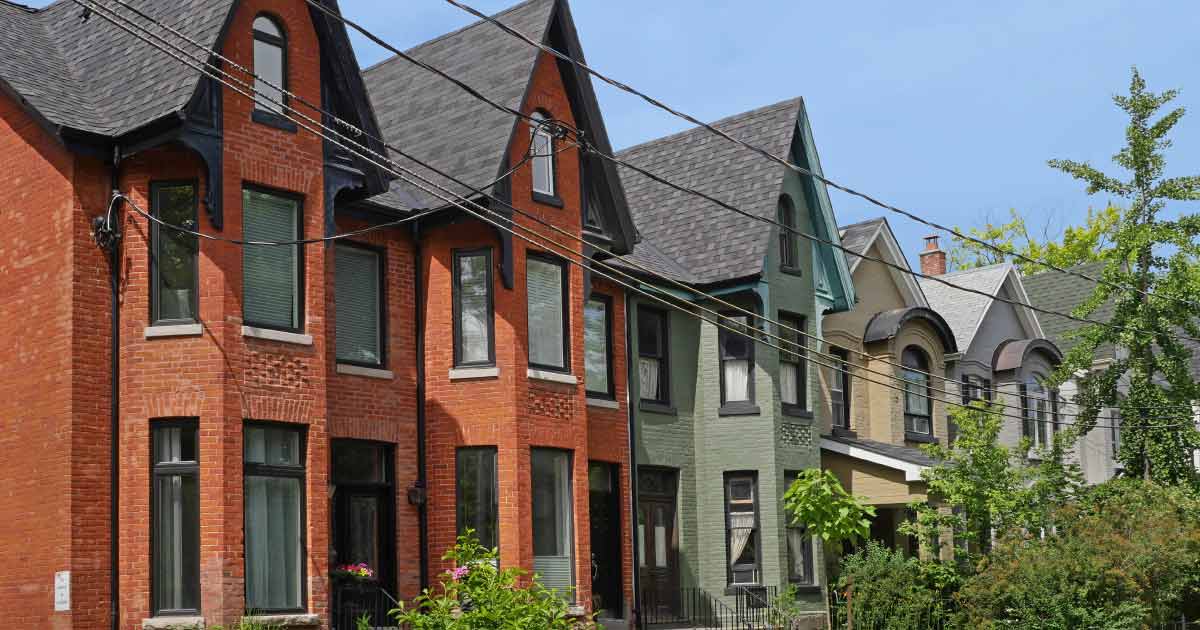5 things to know about inheriting a house in Boston

The emotional toll of inheriting a house
Making decisions about an inherited house is difficult while grieving. The house is a tangible link to the deceased, and selling it can be harrowing. It’s normal to want to keep the house, even though you may live far away or can’t afford it. The reality is that you most likely can’t keep the house and need to sell it. This article will address 5 things that you need to know when you inherit a house.
1. What is “probate” after the death of an individual?
If you are inheriting a house and are the executor of the deceased person’s estate, you most likely have some questions about how to continue. First off, you’re probably asking yourself, “What is probate and what do I need to know about it?”
Probate is the legal process that takes place after the death of an individual to settle debts of the deceased and distribute assets to heirs according to their will. If there is no will, the laws should be followed according to the local statutes. Sometimes, probate goes to court, especially if there is disagreement about the distribution of the assets of the deceased among the potential beneficiaries.
This could take months or years, so it’s best to work out disagreements between heirs with a mediator instead of going to court, if possible. Whether or not probate goes to court, the executor should hire an attorney to help with the legal process.
Probate is handled by the “executor,” who is either named in the will or appointed by the court.
2. Taxes involved when inheriting a house in Boston
When inheriting a house in Boston, you may have to file an estate tax return. According to the Massachusetts government website, “If you're responsible for the estate of someone who died, you may need to file an estate tax return. If the estate is worth less than $1,000,000, you don't need to file a return or pay an estate tax.”
The tax on $1,000,000 to $1,250,000 is computed at the rate of 41 percent. The estate consists of the inherited house and all other assets of the deceased.
There is no inheritance tax in Boston or elsewhere in Massachusetts; however, there are taxes if you sell the inherited house. When you sell an inherited property in Boston, you must pay a one-time transfer tax at the rate of $4.56 per $1000 of the total home sale value.
When you sell the inherited house, the IRS will charge you a capital gains tax on a stepped-up basis, while Massachusetts has a flat rate of 5.0%. There are capital gains tax exclusions that allow you to avoid paying if you have lived at the house for more than 2 of the last 5 years, or you haven’t used the exclusion for another property during the last 2 years.
3. Do all heirs have to agree to sell an inherited property in MA?
If heirs can’t agree to sell the property, but the majority of heirs want to sell, as a last resort they can file a lawsuit of partition action in state probate court, which will allow the majority to sell and divide the proceeds among themselves. If you are in this family situation, consult an experienced attorney.
4. How to transfer a property deed from a deceased relative after inheriting a house in Boston
After probate is completed, the deed can be changed, but it is strongly recommended to have an attorney in charge. The executor of the deceased’s property should go to their lawyer with a copy of the probated will and a copy of the death certificate, and have the attorney draft a new deed.
The executor will then sign the deed as the new owner in front of a notary and have it notarized. The next step is to take the new deed and the other documents to the county recorder and have it filed immediately. Filing a deed costs $155.00 in Boston. When the inherited house is sold, it will then be sold with the executor’s name on the deed.
5. How long does an executor have to sell a house?
According to the Massachusett’s government website, “The general rule is that an estate has to be probated within 3 years of when the decedent died…. If the decedent died on or after March 31, 2012, and no proceedings were filed within 3 years of the date of death, you can file a late and limited formal probate. In some cases, you may be able to file a voluntary administration if you meet the voluntary administration criteria.
Although the state is lax about the probate timeframe, to avoid paying property taxes, utility bills, and insurance premiums, it’s best to probate and sell as soon as possible unless you decide to keep the inherited house.
How to sell an inherited house fast without making any repairs or updates
When the death of a loved one occurs, it’s difficult to even think of selling an inherited house. There are probably a lot of precious memories tied up in that house, and it’s difficult to part ways with the dear place, especially when grieving the departed. In many cases, the deceased has lived in their Boston house for many years, and it may need repairs, deep cleaning, and updates in order to sell the traditional way through a real estate agent, or FSBO (for sale by owner). Instead of dealing with all those hassles to sell your inherited house, especially if you don’t live nearby, an excellent option is to sell to We Buy Ugly Houses®. We buy houses in “as is” condition, so you don’t have to paint, make repairs, or even clean. If there are items in the house that none of the heirs wants to keep, you can leave them in the house. We’ll take care of them.
How to sell to We Buy Ugly Houses®
Contact us for a free, no-obligation consultation with one of our friendly Boston property specialists. We’ll visit your house, take a tour, and answer any questions you may have. In many cases, we can provide a fair cash offer on the same day. Our property specialists live locally and are familiar with the housing market in order to accurately determine your house’s market value.
If you accept our fair cash offer, you’ll be on the path to a swift closing, often in as little as 3 weeks. We are here to help, with consideration of your circumstances in mind. Our customer service skills are well-known, which is why we have an amazing 95%* customer satisfaction rate and great reviews. If you would like to know more about selling your inherited house to We Buy Ugly Houses, contact us to learn more.


